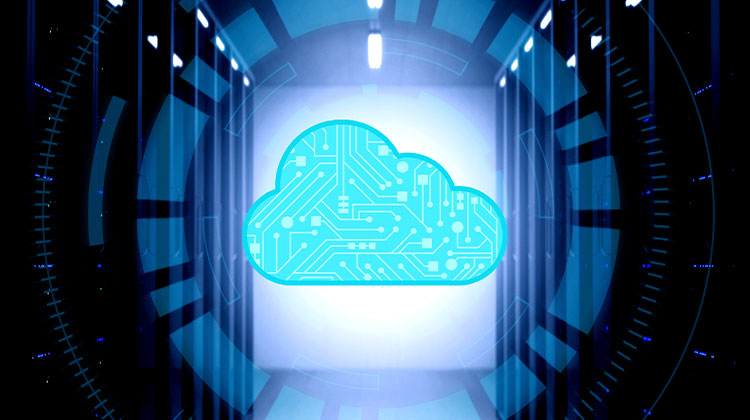This guide will help you understand cloud managed data center services, describing the nature of these services, what they are, how they work, and the reasons they are essential for modern-day businesses. In this guide, you’ll gain an in-depth knowledge of the components, advantages, types, and processes involved with switching services. If you aim to reduce expenses while increasing security or expanding IT resources, then this guide contains everything necessary.
What Are Cloud Managed Data Center Services?
CMDCS are complete solutions that involve third-party service providers taking responsibility for the management, maintenance, and improvement of the physical data centers through cloud-based technologies.
These cloud-based services generally comprise:
- 24/7 monitoring and maintenance of virtual and physical infrastructure
- Remote control of storage, servers, and networking equipment
- Automated provisioning and scaling of data center resources
- Security management, which includes the detection of threats and their response
- Performance optimization and capacity planning
- Disaster recovery backup, data storage, and disaster recovery services
Utilizing cloud technology, they offer greater flexibility, scalability, and cost efficiency compared to conventional in-house data centers.
Businesses can leverage the experience and services provided by these specialized providers to focus on meeting their business goals without needing an in-house IT infrastructure or personnel.
CMDCS also helps businesses quickly adapt to emerging technological trends and market requirements to ensure that their IT foundation remains up-to-date and competitive.
Also read: What is Cloud Bursting? Benefits and Use Cases
Key Components of Cloud Managed Data Center Services
At the core of CMDCS lie three essential infrastructure components: storage, computing, and network.
Collectively, these components form the cornerstone of any cloud-based infrastructure for data centers and ensure smooth operations and effective data management.
Each of the components is essential for the operation and efficiency that the center provides and understanding them will help maximize the full potential of their business.
Computing
The cloud computing infrastructure in cloud managed data providers comprises various servers that are designed to perform data processing tasks.
Blade servers, renowned for their slim and effective design, include CPUs, memory, and built-in storage drives that make them perfect for data centers with high density.
They are usually favored because of their space-saving advantages as well as their higher processing speed as compared with rack-based servers.
Rack servers provide a well-organized stacking solution that allows for easier management in the data center.
Storage
Storage infrastructure is a crucial element of CMDCS, comprising various storage methods for data, including blocks and storage devices for files.
Storage devices that block data, like SSDs and hard drives SSDs give speedy access and performance to data stored in blocks.
File storage devices, like Network Attached Storage (NAS), allow for creating archives and managing large data volumes.
These systems ensure that sensitive information can be safely stored and quickly accessible at any time.
Network
Cloud managed network infrastructure service providers are comprised of essential networking devices like switches, routers, and firewalls, which facilitate connections and data transfer.
These devices allow for smooth data flow within the center of data, which improves overall performance and ensures reliability.
With the help of reliable network devices, cloud managed services can keep high levels of connection and data integrity.
Benefits of Using Cloud Managed Data Center Services
Data center managed services provide several benefits to companies seeking to improve their IT infrastructure.
The benefits of this are:
- Improved scalability allows companies to quickly adjust their resources in response to changing requirements without having to invest in more equipment and software, in contrast to traditional data centers
- Increased cost efficiency through pay-as-you-go models, removing the significant upfront capital expenses associated with traditional data center operations.
- Access to specialist expertise and 24/7 support by cloud providers alleviates the workload on IT teams.
- Improved reliability and availability because of multiple systems and advanced monitoring tools.
- Solid disaster recovery and backup solutions to ensure continuity of operations in the face of unforeseeable events.
- Security measures that are enhanced, such as high-end encryption techniques, intrusion detection, and the management of compliance
- Global accessibility, which allows seamless operations across many data centers and remote work environments
- Access to the most modern data centers and cooling systems to optimize network performance
- With these advantages, companies can concentrate on their core business goals while maintaining the flexibility, security, and effective IT infrastructure.
Choosing the Right Cloud Managed Data Center Service Provider
Selecting an experienced cloud managed data center service provider is crucial to ensure a seamless transition and uninterrupted operations.
Prioritising knowledge and experience when selecting an organization can ensure uptime, reliability guarantees, as well as provide top-of-the-line customer support and service.
Let’s explore these requirements in greater detail.
Expertise and Experience
Choose a provider with proven expertise in managing cloud data centers efficiently to guarantee top-quality service delivery.
Cloud service providers must possess extensive expertise and experience with cloud computing environments to oversee complex environments efficiently and reduce operational failure.
Investigate their track record in efficiently overseeing cloud data centers to give yourself peace of mind that they’ll meet the requirements for your specific business needs.
Reliability and Uptime
High availability and minimal downtime are both key requirements of companies relying upon cloud MDCS systems.
Service providers with clear uptime guarantees and proven reliability can reduce downtime risk significantly, creating confidence in operations while increasing overall stability.
The assurance of high uptime by service providers is crucial to the success of cloud MDCS.
Support and Customer Service
A reliable customer service is vital to ensure smooth operation and rapid resolution of issues.
A reliable support system is available 24/7 through multiple channels and rapid response times.
An expert team on hand is vital for businesses looking to ensure high levels of performance and dependability from their cloud managed data center service.
Also read: What Is Data Security Management? A Complete Guide for 2025
Common Challenges and Solutions in Cloud Managed Data Center Services
Adopting cloud-based managed service provider may bring many advantages. but, the transition also presents its fair share of difficulties and hurdles to be navigated.
Common issues include data security, reducing costs, and performance. Each of these requires particular strategies and solutions to ensure efficient cloud-based operations.
Let’s examine these issues in greater depth.
Data Security Concerns
Data security is a key issue for businesses that are moving to cloud-based environments.
The limitations on data security in cloud services could leave the security of data and privacy typically completely out of the business’s control.
An extensive evaluation of cloud migration projects will reveal compliance and security issues that could thwart their completion.
Post-migration validation is of utmost importance to safeguard data integrity and ensure system performance meets expectations, also protecting sensitive information within its new environment.
Managing Costs
Controlling costs with cloud-managed services means forgoing initial capital expenses and only paying for resources as used, providing more predictable cost structures.
Understanding the cost associated with cloud services helps companies plan and budget effectively.
Utilizing cost-efficient cloud service levels and automating resource management and tracking cost and usage metrics are integral parts of optimizing resource allocation while limiting overspending.
Performance Optimization
Optimizing performance involves employing several strategies, such as using load balancers to lower network latency and Content Delivery Networks (CDNs) to increase data transfer speed.
Continuous monitoring and optimization are necessary to achieve optimal performance from resources.
These methods ensure that cloud data centers operate effectively and provide the required performance.
Final Remarks
Cloud data center managed services offer enterprises many benefits, from cost reductions and capacity expansion scalability to increased security.
Understanding the key features and various types of cloud managed data center services enables businesses to make more informed choices when choosing IT systems for use within their company.
Businesses can successfully transition into cloud managed data centers by selecting an effective service provider and planning their migration.
Awareness of common challenges and keeping informed on future developments are keys to successfully using cloud services.
Explore the future of data management and harness all its potential through cloud managed data center services.















Leave a comment